WIBTA for refusing to stop cooking bacon in my kitchen due to my teenage daughters vegan lifestyle?
A devoted father finds himself caught in the crossfire of changing values within his family. His teenage daughter’s passionate shift to veganism challenges the long-standing traditions of their rural, meat-loving household, stirring emotions and testing the bonds they’ve always shared.
What began as wholehearted support for his daughter’s new lifestyle now reveals unexpected tensions, as the simple act of cooking bacon becomes a symbol of deeper conflicts. In this struggle between old habits and new convictions, the family grapples with understanding, respect, and the meaning of shared space.

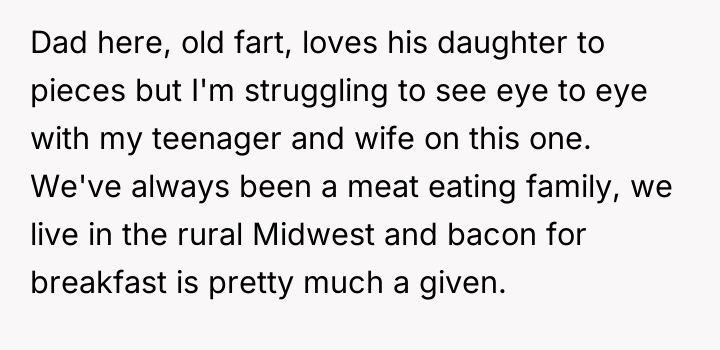
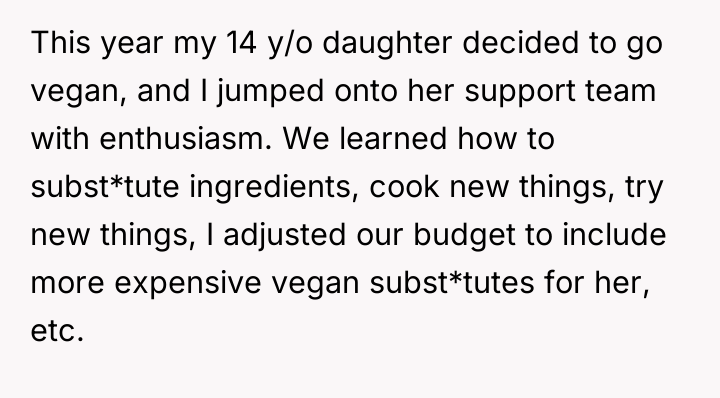




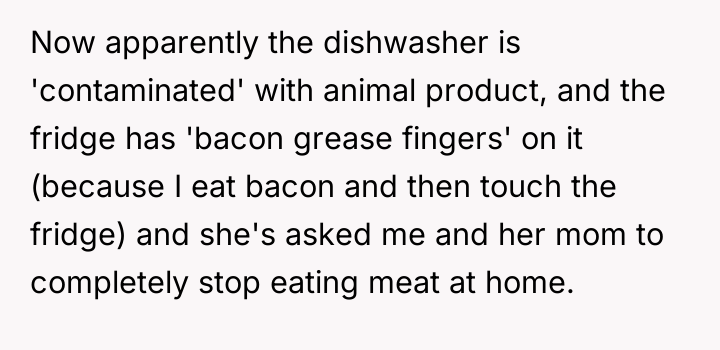
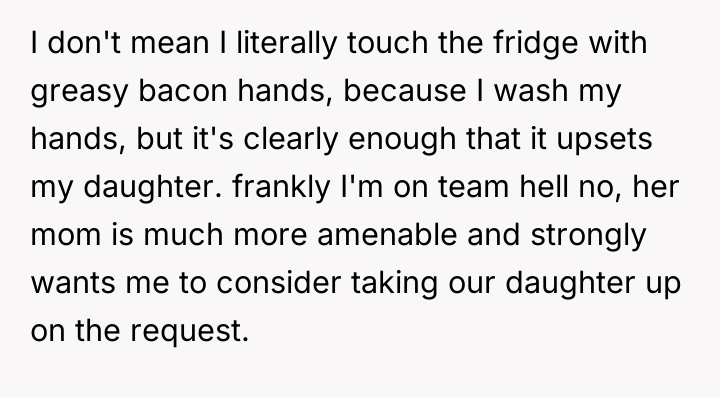

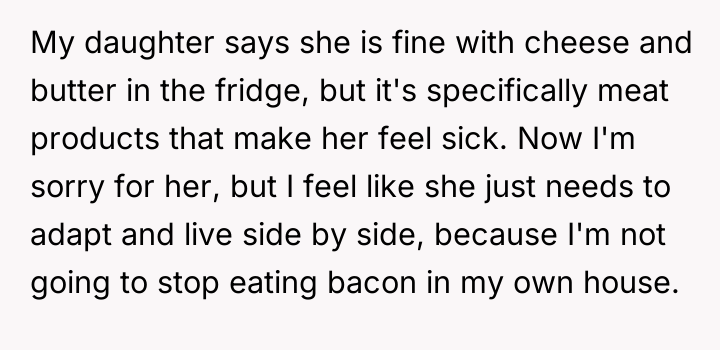
Subscribe to Our Newsletter
As renowned researcher Dr. Brené Brown explains, “Boundaries are the distance at which I can love you and me simultaneously.” This situation perfectly illustrates the tension that arises when deeply held personal values (the father's traditional diet) directly conflict with the expressed values of another family member (the daughter's veganism). The daughter is attempting to establish a clear boundary based on her moral framework, which she perceives as requiring physical separation of animal products to maintain her comfort and integrity. The core conflict here revolves around differing perceptions of contamination and control within a shared space. The father is focused on practical hygiene (washing hands) and the tradition of shared resources (family pan), viewing his daughter's requests as overly sensitive adaptations. Conversely, the daughter is operating from an emotional and ethical standpoint where mere proximity or trace amounts of animal products constitute a violation of her commitment. The wife's position introduces a mediator role, prioritizing immediate family harmony over the father's sense of fairness regarding shared space. The father's initial attempts to accommodate (buying a dedicated pan) were a good first step, but they failed to address the deeper issue of perceived cross-contamination in the larger kitchen environment (dishwasher, fridge surfaces). A constructive recommendation would be for the parents to collaboratively establish clear, scientifically reasonable, and emotionally respectful protocols for the kitchen. This might involve designating specific, small areas or containers for vegan storage, and agreeing on a communication plan rather than reacting defensively to boundary testing. The goal should be shared respect for different needs, not unilateral compliance.
REDDIT USERS WERE STUNNED – YOU WON’T BELIEVE SOME OF THESE REACTIONS.:
The crowd poured into the comments, bringing a blend of heated opinions, solid advice, and a few reality checks along the way.

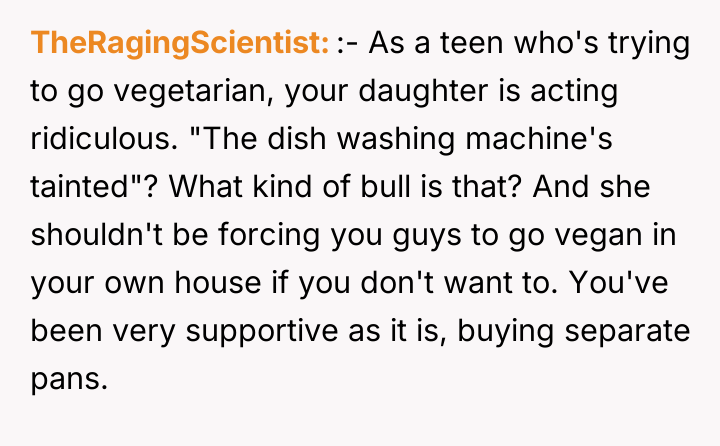

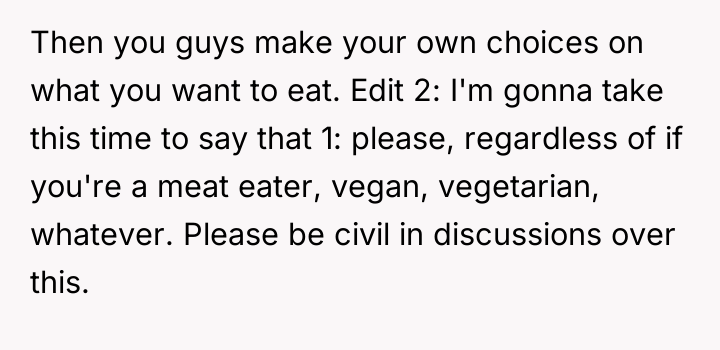



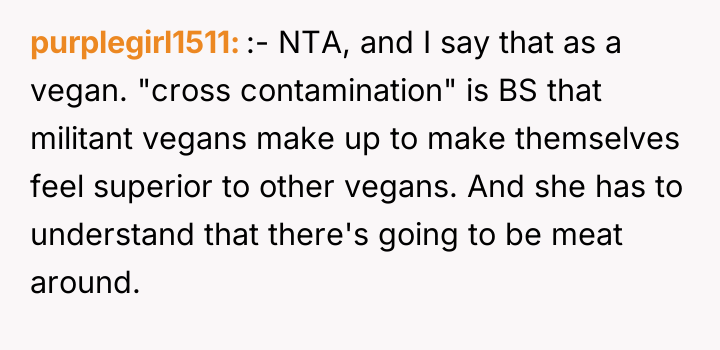

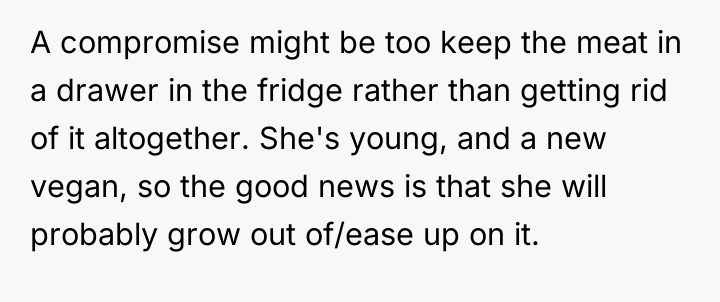


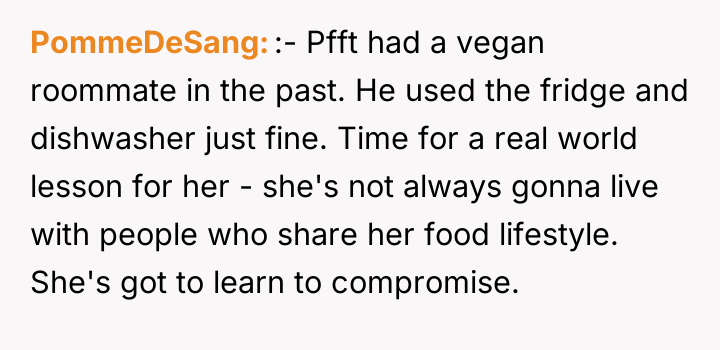
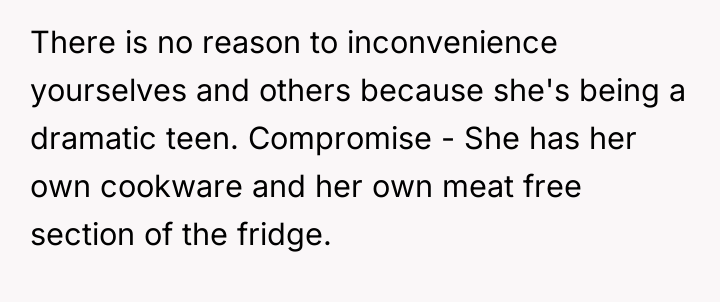

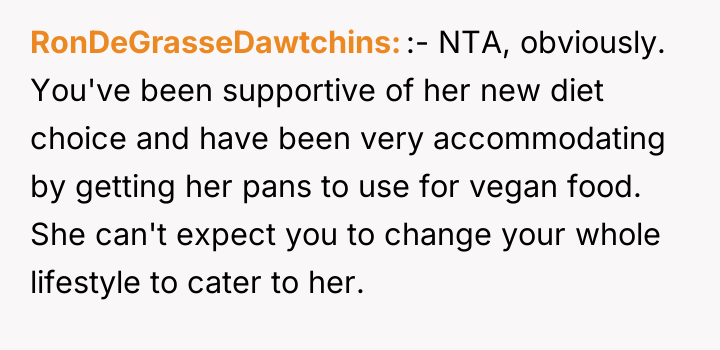




The father finds himself in a difficult position, torn between supporting his daughter's strong new ethical commitment to veganism and maintaining his long-held family traditions regarding diet and shared kitchen use. His initial enthusiasm for supporting her has met a firm boundary set by the daughter regarding cross-contamination, which he feels requires an unreasonable adaptation from the entire family.
Should the father prioritize his daughter's deeply felt ethical need for a completely separate food space to avoid distress, even if it means significantly altering his own habits in his own home, or is the daughter's request an overreach, demanding that the majority adapt to the minority's lifestyle choices within a shared domestic environment?